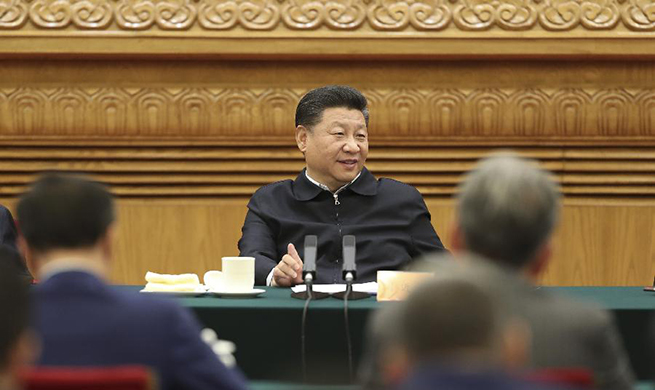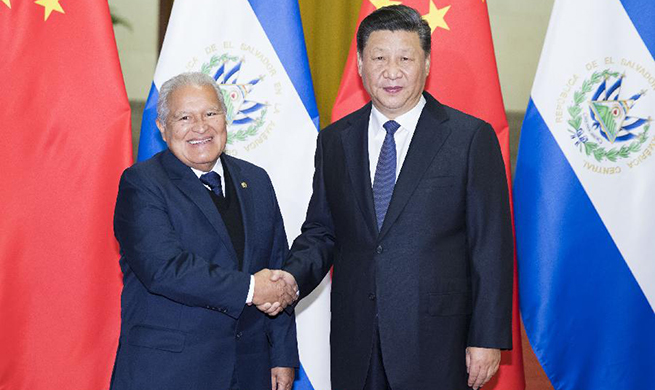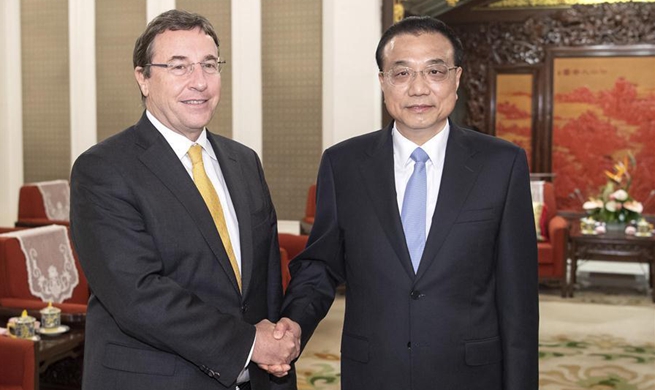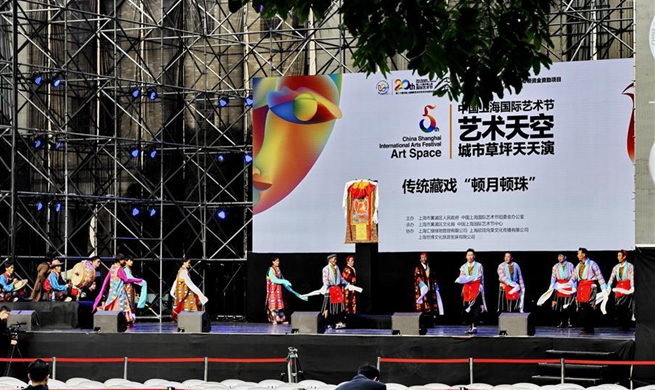HONG KONG, Nov. 2 (Xinhua) -- U.S. tariffs on Chinese products would only lead to a shift in manufacturing from China to countries with higher labor costs that would in turn aggravate the U.S. trade deficit and result in a surge in prices for U.S. consumers, said an economist here on Thursday.
The remarks were made by Justin Lin Yifu, director of Center for New Structural Economics at Peking University and former senior vice president and chief economist of the World Bank, at a forum held by Our Hong Kong Foundation, a Hong Kong think tank.
Lin said that China is expected to maintain a medium-to-high growth rate of around 6.5 percent given its significant potential for innovation and industrial upgrading, believing that China's sizable domestic market also provides space for further economic development.
During his talk at the forum under the theme "China's New Economic Era in the Face of Escalating Trade Conflicts," Lin revealed the impact of the current Sino-U.S. trade disputes and how it would affect China's economic prospects. The forum attracted about 400 attendees, including diplomats, senior business executives and scholars.
The draconian tariffs imposed by the United States on 250 billion U.S. dollars worth of Chinese imports have resulted in trade disputes of unprecedented scale between the world's two largest economies, according to Lin.
The Sino-U.S. trade imbalance is in fact a result of "the difference in comparative advantages across economies" and East Asia has been a labor-intensive production hub providing the U.S. market with affordable consumer goods since the 1950s, Lin said.
Labor-intensive production lines began in the 1980s to be relocated from Asia's "Four Tigers" to the Chinese mainland, according to Lin.
As a result, China has gradually become the source of blame for the U.S. trade deficit. However, the trade deficit with East Asia as a whole, including China, has fallen from over 100 percent in the 1980s to roughly 60 percent today, suggesting that China is not the cause of the expanding deficit, he said.
Lin noted that the average wage in China's manufacturing sector has risen rapidly in recent years, reaching 9,165 U.S. dollars per annum in 2015, more than two times higher than that of Thailand and more than triple the figures in most other Southeastern Asian countries.
He believed that, as China's economy continues to develop, its labor-intensive manufacturing will gradually shift to other regions where costs are lower, such as Vietnam, Cambodia, Bangladesh, India, Indonesia and countries in Africa. Despite low wage, these regions commonly lack a mature supply chain and their overall manufacturing costs might therefore be even higher than in China.
Lin stressed that the Trump administration is wrong to label China as the root cause of America's own trade deficit. Imposing hefty tariffs on Chinese products will neither narrow the deficit nor create jobs in the United States. On the contrary, it will only accelerate the shift of manufacturing from China to other countries, thereby widening the U.S. deficit against those countries and driving up the cost of imported products for U.S. consumers.
Bilateral trade should be mutually beneficial, Lin said. He expected that the U.S. and Chinese governments will resolve the current trade disputes through dialogue and negotiation.
















